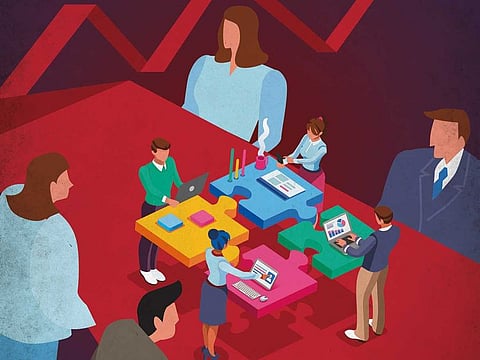Teaching and learning of economics needs a generational change
Today’s economics learning cannot be done with past models

Over the years, I have found at parties that ‘I am an economics professor’ is not the answer someone is hoping to hear when they ask – as part of the necessary and dreaded small talk – ‘What do you do for a living?’.
The reaction I get is typically accompanied by the type of body language you might reserve for consoling someone whose pet dog has just died.
I can understand it in many ways. Economics has a bad reputation. Its teaching is often overly theoretical, and when economists do comment on real-world events, few have covered themselves in glory with their predictions.
Making economics more relevant and interesting is vital because it has an important role to play. Economics – when done well – can have a powerful impact on society, in government, in business, and in our everyday lives. The key here is context. How do we show that economics is useful?
At Zayed University, we now offer interdisciplinary degree programs. These provide students with the skills they need to succeed in their careers as well as a breadth of knowledge, and depth of expertise in their chosen subject.
Finding new ways for economics lessons
Significantly, economics takes centre stage in these degrees. A student enrolling in our Sustainability Major, for example, will study the economics of sustainable development because to deliver meaningful and lasting change it is just as vital to understand the economic imperatives of a policy or business decision as it is the social and environmental imperatives.
If the policy or business decision does not make economic sense, then it is unlikely to ever be implemented.
As part of these programs, we have thought creatively about how to engage our students in subjects which they may not immediately find appealing. We all know that a disengaged student will not learn and understand what they are being taught.
Real-world understanding
One initiative that has delivered great success and better learning outcomes this year has been a semester-long role-play exercise where students are tasked with transforming a small family business called the ‘Really Nice Fashion Company’ (RNFC).
The RNFC is a Dubai-based company that manufactures and supplies garments to fast-fashion brands in Europe and North America. The student teams have inherited the operations of the business from their parents, who founded the company in the 1990s, and the business is at a turning point.
The RNFC has been successful, but is now losing money. There is inflation in Europe and North America with higher global fuel prices, and this is impacting sales in their key markets. There is also increased supply chain risk from more frequent extreme weather conditions as a result of climate change.
Each week throughout the semester the students are asked to manage new real-world situations and adapt the business strategy accordingly.
There are five reasons why this class engaged students.
In summary, a pedagogical model that is meaningful, facilitates active engagement, supportive of social interaction, designed for iteration, and delivers a joyful learning experience is going to be impactful.
If we are to develop the next generation of responsible leaders, then we need to teach students to consider issues holistically and in an inter-disciplinary way. Transforming the way economics is taught in universities is long overdue.
We cannot solve the problems of tomorrow, with the business models – or higher education methods – of the past.




